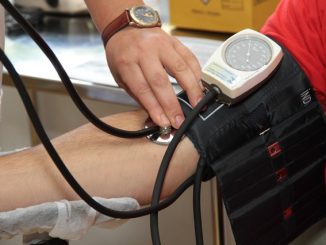
Opening Insights
What is the state of academia and who saw thIn a Guardian Article, Terry Eagleton discusses that: "Academia has become a servant of the status quo. Its malaise runs so much deeper than tuition fees."
Informational Insights
Want to Study the Business of Marijuana? There's a Degree Program for YOU!
LANSING, Mich. — Alex Roth has gotten into the habit of pulling out his cellphone and showing skeptical friends a screen shot of the classes he’ll have to take to get his bachelor of science degree from Northern Michigan University.
“When they hear what my major is, there are a lot of people who say, 'Wow, cool dude. You’re going to get a degree growing marijuana,’ ” said the 19-year-old sophomore at Northern Michigan University in Marquette. “But it’s not an easy degree at all.”
His four-year medicinal plant chemistry degree — geared toward the burgeoning marijuana business that is about to explode in Michigan next year — includes classes such as organic chemistry, biochemistry, soils, biology, gas and liquid chromatography, biostatistics, genetics, accounting, financial management and perspectives on society.
Other colleges and universities — such as Harvard, University of Denver, Vanderbilt University and Ohio State University — offer a variety of classes on marijuana policy and law.
More: States forge path through uncharted territory to legal pot
And there are programs that offer marijuana certificates in a variety of disciplines at places such as Oaksterdam University, Cannabis College, and Humboldt Cannabis College, all in California; and THC University, the Grow School and Clover Leaf University in Denver.
But the Northern Michigan University program is unique, mixing chemistry, biology, botany, horticulture, marketing and finance in a four-year program that began this semester. The first class has a dozen students, but Mark Paulsen, director of the university’s chemistry department, expects that number to grow quickly.
“We’re gaining students every week,” he said. “With a full 12 months of recruitment, we expect that to grow.”
The idea for the program came last year when associate chemistry professor Brandon Canfield attended an American Chemical Society annual meeting in San Diego.
“I heard all about the need for analytical chemists (in the cannabis industry) and all sorts of interesting talks. That was the initial spark,” he said.
Eighteen months later, the program is off and running with the blessing of the Northern Michigan University Board of Trustees.
“Many of the states are legalizing different substances and they’re really looking for quality people to do the chemistry and the science,” said university trustee James Haveman. “And it’s the university’s responsibility to produce those kinds of students for those kinds of jobs.”
Students won't be growing marijuana plants in the program.
Canfield said there are plenty of ways to transfer the knowledge from growing other medicinal plants to marijuana.
“I work with plants right now that could be considered medicinal plants,” he said, citing things such as St. John’s Wort, ginseng root and mint. “We look to other plants that have been traditionally recognized with medicinal value, but are not illegal to grow.”
The students will learn how to measure and extract the compounds in the plants that can be used for medicinal purposes and then be able to transfer that knowledge to marijuana, which has been used to treat a variety of illnesses including chronic pain, nausea, seizures and glaucoma.
When Roth started at Northern Michigan in 2016, he was considering an environmental science degree, but decided the current political environment might not produce the type of job he wanted. When his mother, a nurse, sent him an article on the university's new medicinal plant program, he switched his major and chose the entrepreneurial path for his degree, with the hope of breaking into the multimillion-dollar business when he graduates in 2020.
Roth wants to help remove the stigma that is associated with marijuana use. He compares the “Reefer Madness” culture to how the prohibition of alcohol in the 1920s evolved into today’s reality.
“Alcohol is such a big part of our culture now and I want to be a part of the change to normalize marijuana,” he said. “And I look at how much the industry is going to be worth and I think this is one of the smartest decisions I could make for my future.”
While medical marijuana revenues in Michigan are estimated at more than $700 million, if full legalization of marijuana happens, as it has in eight other states and the District of Columbia, the revenues could be enormous. Arcview Market Research, a California-based company that tracks the marijuana industry, reported $6.8 billion nationally in legal marijuana sales — both recreational and medicinal — in 2016, and projects the market to grow to $21.6 billion by 2021.
So there is certainly going to be a need for chemists, agriculture experts and entrepreneurs to populate the business across the nation where 29 states have legalized medical marijuana, plus the eight states and the District of Columbia with full legalization of marijuana for recreational use. A petition drive is under way to gather the necessary 252,523 signatures to get full legalization of marijuana on Michigan’s ballot in November 2018.
Before that happens, though, Michigan will roll out regulations on the growing, testing, transportation and sale of medical marijuana in the state with applications for licenses available on Dec. 15. The state Medical Marijuana Licensing Board is expected to begin awarding licenses in five different categories — for growing, processing, testing, transporting and retail sales — in the first quarter of next year.
Northern Michigan University is leaving nothing to chance. Faculty members have attended several marijuana-related conferences across the country this year looking to recruit students for their program as well as line up businesses that will want to hire students as both interns and full-time employees after graduation.
“We’ve had an overwhelming response from growing operations, dispensaries and other businesses who want to take on our students as interns,” Canfield said, adding that a stereotypical stoner need not apply.
“Obviously, the program is new and different and it might speak to a certain crowd,” he said. “But for a student to succeed, they’re going to have to be very dedicated and motivated. This is not an easy program. It’s a really intense, biology chemistry program.
Source: https://www.usatoday.com/story/news/nation-now/2017/10/09/marijuana-degree-northern-michigan-university/745964001/
Possibilities for Consideration
- What if there is a way to find relief from addictions, mental and emotional traumas that is drug free and evidence-based?
- What if there is a way to reverse our learned behaviors and social conditioning to discover the freedom to be and live with ourselves and others?
- What if there is a way to effectively assess and discern the long-term effects of drug usage on the brain?
Add Your Insight
Drugs are the enemies of ambition and hope -
and when we fight against drugs we are fighting for the future.
BOB RILEY





